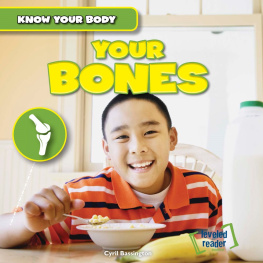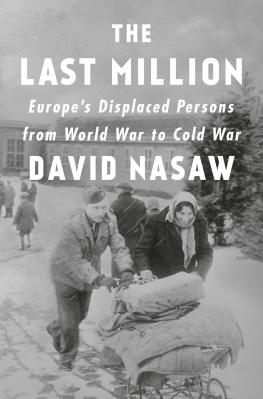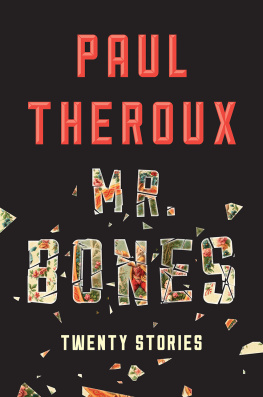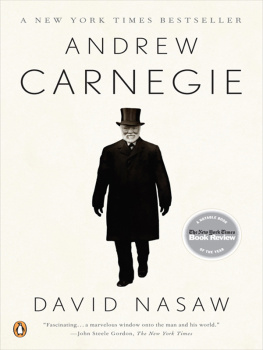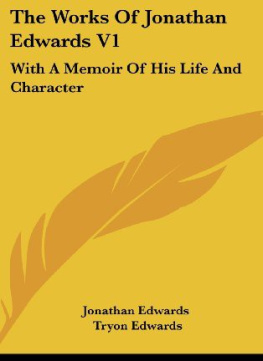Jonathan Nasaw - Twenty-Seven Bones
Here you can read online Jonathan Nasaw - Twenty-Seven Bones full text of the book (entire story) in english for free. Download pdf and epub, get meaning, cover and reviews about this ebook. genre: Detective and thriller. Description of the work, (preface) as well as reviews are available. Best literature library LitArk.com created for fans of good reading and offers a wide selection of genres:
Romance novel
Science fiction
Adventure
Detective
Science
History
Home and family
Prose
Art
Politics
Computer
Non-fiction
Religion
Business
Children
Humor
Choose a favorite category and find really read worthwhile books. Enjoy immersion in the world of imagination, feel the emotions of the characters or learn something new for yourself, make an fascinating discovery.

- Book:Twenty-Seven Bones
- Author:
- Genre:
- Rating:5 / 5
- Favourites:Add to favourites
- Your mark:
- 100
- 1
- 2
- 3
- 4
- 5
Twenty-Seven Bones: summary, description and annotation
We offer to read an annotation, description, summary or preface (depends on what the author of the book "Twenty-Seven Bones" wrote himself). If you haven't found the necessary information about the book — write in the comments, we will try to find it.
Twenty-Seven Bones — read online for free the complete book (whole text) full work
Below is the text of the book, divided by pages. System saving the place of the last page read, allows you to conveniently read the book "Twenty-Seven Bones" online for free, without having to search again every time where you left off. Put a bookmark, and you can go to the page where you finished reading at any time.
Font size:
Interval:
Bookmark:
Jonathan Nasaw
Twenty-Seven Bones
From too much love of living,
From hope and fear set free,
We thank with brief Thanksgiving
Whatever gods may be
That no man lives forever
That dead men rise up never
That even the weariest river
Winds somewhere safe to sea.
Algernon Swinburne, The Garden of ProserpineSee my lips tremble and my eyeballs roll,
Suck my last breath, and catch my flying soul!
Alexander Pope, Eloise to AbelardPrologue
In 1985, in the village of Lolowaasi, on the island of Pulau Nias, seventy-five kilometers off the western coast of Sumatra, a chieftain lies dying.
Or rather, sits dying. It is still the custom on Lolowaasi for a chief to deliver his obligatory deathbed oration sitting up in his elaborately carved wooden marriage bed, supported from behind, if necessary, by one or more of his wives, with the skull or the right hand of one of his enemies nearby, for him to take with him over the bridge to the next world.
Sometimes a deathbed oration, summing up the great mans life and reign as well as the history of the village, goes on for days. This one started several hours ago. But although all around the chieftains house village life continues as usual-women boil yams or work the fields; men chop wood or feed and groom the pigs, which are the primary source and display of wealth in the island economy-in the Omo Sebua, or Great House, neither of the dying chieftains two potential successors has yet stirred from his bedside.
There is a reason for this fidelity. In Lolowaasi, both succession and inheritance are still conferred the traditional way: upon whichever of the heirs manages to be close enough to the chieftain at the ultimate moment to inhale his dying breath, which is believed to contain his sofu and faatua-tua, authority and wisdom, along with his all-important lakhomi, or spiritual glory. Together these comprise his eheha-his spirit, or immortal soul.
Get the breath, you get it all: the pigs, the property, the spirit, the Great House. So the two heirs, bare-chested, with ceremonial gilt-threaded sarungs wrapped around their waists, wait and listen while the women come and go, bearing platters of rice and chicken and crackling pork.
But there is one woman present who neither cooks nor serves. She is a young white woman, an American, half of a husband-and-wife team of anthropologists. She and her husband are using a camcorder to document what is believed to be the last traditional-culture village in the North Sumatra province of Indonesia. He operates the camcorder, while his much younger wife takes notes by hand.
The anthropologists, who have heard about the deathbed ritual but never witnessed one, know what is supposed to happen next. According to tradition, after the oration and the deathbed blessings (everyone in the room including the Americans is eligible for a kind word and a chunk of consecrated pig jawbone), the chief will remain sitting, supported by his wives, while his two sons shuffle in a circle at the foot of the bed.
When his senior wife senses that the chieftain is dying, she will signal to the other wives. Together they will lay him back down, and the lucky heir who is closest to the bed at that moment will lean over the chieftain, openmouthed, and suck in the expiratory exhalation, sofu, faatua-tua, lakhomi, eheha, and all.
Timing is everything-the Americans are expecting something on the order of a solemn game of musical chairs with an unusually intense scramble when the music, so to speak, stops. Theyve even joked about it privately.
But in the end there is nothing funny about what transpires this summer afternoon. The camera catches it all. Before signaling to the other wives that the time that will come for us all has come for the chieftain, the dying mans senior wife surreptitiously signals the older son, the son of her own loins, Ama Bene, by putting the back of her hand to her brow as if in grief. He slows his pace and is standing by his fathers head as the old man is laid back down upon the batik-covered mattress. The scrawny bare chest-not even the wealthiest man in Lolowaasi has much fat on him-falls, rises, falls again.
Just as Ama Bene begins to bend over his father, the tape shows him being pushed violently aside, shoved all the way out of the frame, and as the room explodes into chaos, it is the younger son, Ama Halu, whom the camera captures leaning over the body of the chief. He inhales deeply, a great, whooping gasp, and throws up his arms in triumph.
But a moment later Halu staggers back from the bed, a bloody spearpoint protruding downward from his lower belly at an obscene angle. From behind him, Bene comes into the frame again, grasps the spear, and leans backward, placing his bare foot against his younger brothers backside for leverage.
The spearpoint disappears. Bene falls backward with the gory spear in his hand as Halu reels toward the female anthropologist. She catches him in her arms. Bloody froth bubbles from his mouth.
Meanwhile, Bene has regained his feet and is charging toward the two. Clearly his intent is to reclaim the patrimonial breath, one step removed. But Halu has other ideas. He glances over his shoulder at his older brother, flashes him a bloody grin, then turns back to the woman. He clamps both hands around the back of her head and pulls her face to his, opens his mouth wiiide, and plants his lips over hers.
She struggles, her mouth smeared with blood. She tries to turn her head, but even with Bene trying to separate the two, Halus death grip is unbreakable. Halu falls heavily to his knees; the woman falls to hers. He breathes his last into her mouth as his brother clubs him repeatedly from behind with the butt of the spear. The woman feels the dull shock of the blows indirectly; the front tooth that is chipped that day will never be capped.
As for the dying breath, it is soft as a sigh, sour and coppery, and there is not, and will never be, a doubt in the womans mind that there is more to it than carbon dioxide. The hands clenched around her head relax; the dead man topples to the floor. Kneeling alone now, she looks up-Ama Bene, the fratricide, stands over her, his face distorted with rage, gore-tipped spear drawn back. She gives him a bloody, triumphant grin. The blood and the triumph belong not to her but to the dead man; the grin, however, is very much her own.
Chapter One
1
Andy Arena drove down to the Frederikshavn docks at midnight and parked his elderly yellow Beetle across the street from the deserted harbormasters shed, as instructed. When he was sure that no one was watching, he locked the car, crossed the road, and waited by the shed with his duffel bag, again as instructed.
Andy, a thirty-nine-year-old bartender whose favorite song was Jimmy Buffetts A Pirate Looks at Forty, didnt know yet whether theyd be leaving by land or sea (the Epps had been deliberately vague on that point), but either way, he could hardly contain his excitement. Top secret plans, a midnight rendezvous, a hand-drawn oilcloth map, buried treasure: even if they returned empty-handed, the adventure alone would be worth his time and trouble.
In any event, he had nothing to lose. If his new partners had asked him to share expenses or put up some good faith cash-well, Mama Arenas baby boy Andrew hadnt just fallen off the banana boat yesterday. But all the Epps seemed to require of Andy was a closed mouth and a strong back, for which they were prepared to pay 10 percent of their net proceeds, if any.
At 12:05, a white Dodge van with curtained windows pulled up. Andy slid the side door open, tossed his duffel in the back, and climbed in after it. There was no rear seat. Andy overturned an empty plastic bucket to sit on and exchanged a friendly nod with the other man in the back of the van, an Indonesian of indeterminate age whom he knew only as Bennie, squatting on his hams by the back door. Andy had never been able to figure out the precise relationship between the Epps and Bennie. Ostensibly he was their houseman, but something about his deep-set, watchful eyes, his seamed face and grave demeanor, suggested to Andy that there was more to it than that.
Font size:
Interval:
Bookmark:
Similar books «Twenty-Seven Bones»
Look at similar books to Twenty-Seven Bones. We have selected literature similar in name and meaning in the hope of providing readers with more options to find new, interesting, not yet read works.
Discussion, reviews of the book Twenty-Seven Bones and just readers' own opinions. Leave your comments, write what you think about the work, its meaning or the main characters. Specify what exactly you liked and what you didn't like, and why you think so.

